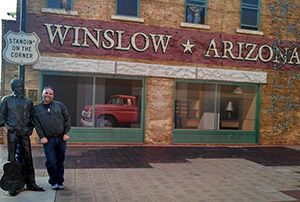Freightliner Question
Topic 18884 | Page 1
Mine's a 2016 cascadia and it doesn't do that.
Is it an auto? I heard the autos make some weird noises. But my 2015 didnt
I have a 2012 mid roof. The only thing I ever hear from the brakes is the self adjusting slack adjusters adjusting if I have to get on the brakes hard. They never adjust at the same time so it will pull one way then the other. They make a popping noise.

Its an auto, but he said it does it on his old stick shift truck before he traded it in. The noise isnt nessicarily popping and it doesnt pull one way or the other while making it. This 2017 auto does it a lot more than his other one that was an older stick.
Weird. Never happened to me. I drove an auto for six months and an older manual for a few months. Haven't noticed it on any of the Freightliner daycabs I've slip seated in either.
The 2017 auto I trained in didn't do it, nor does my 2018

Here's part of an 2014 Truckinginfo.com article - not sure if this is what your trainer's experiencing:
We have heard reports of shorter-than-expected steer-axle brake drum life and of noisy, chattering brakes on trucks equipped to meet the shorter stopping distance requirements that went into effect in August 2011. Some of those models would now be coming up on a reline interval, while others may now require brake service where historically there was none. Briefly, the National Highway Traffic Safety Administration mandated that a tractor-trailer traveling at 60 mph must come to a complete stop in 250 feet, versus the old standard of 355 feet. The first trucks the rule applied to were three-axle tractors with a gross vehicle weight rating of 59,600 pounds — or just about every line-haul truck in the country. Fleet exposure to the symptoms seems to be tied to the OE and their choice of brake supplier. Bendix and Meritor, for example, both report that changes they made to their lining formulations and brake designs to meet the reduced stopping distance rules are manifesting themselves on some customer trucks as chattering noises, and in other cases as shortened lining and/or drum life. “The problem is you’ve got these big brakes on the front axle, but they are ‘underutilized’ in normal conditions,” explains Frank Gilboy, product manager of aftermarket brake shoes at Bendix Spicer Foundation Brake. “If there’s insufficient heat to condition the brake properly, they will glaze and they will develop some noise and chatter.” It’s nothing to worry about from a performance perspective, they say, but an unintended and perhaps irritating consequence of the rule change. “Fleets are seeing linings glaze up because they aren’t being worked hard enough,” says Jim Reis, vice president and general manager of Stemco’s Brake Products division. “That’s causing noise and vibration in as little as three months after the truck goes into service. Typically front brakes ran the life of the vehicle, if not for rust-jacking. Now we find they need attention because of the glazing problem. It’s not so much a matter of [truck owners] wearing the brakes out, but just being dissatisfied with the day-to-day performance.”
Manifest:
Bill of Lading
An accurate record of everything being shipped on a truck, often times used as a checklist during unloading.
Dm:
Dispatcher, Fleet Manager, Driver Manager
The primary person a driver communicates with at his/her company. A dispatcher can play many roles, depending on the company's structure. Dispatchers may assign freight, file requests for home time, relay messages between the driver and management, inform customer service of any delays, change appointment times, and report information to the load planners.HOS:
Hours Of Service
HOS refers to the logbook hours of service regulations.
That actually sounds about right. Thank you soo much lol its been bothering us to no end!
New Reply:
New! Check out our help videos for a better understanding of our forum features

















Preview:








 TT On Facebook
TT On Facebook
So my trainer said this issue has happened across all freightliners him and his friends owned. He still has not found the answer yet.
When you step on the service brakes sometimes itll cause the front end of the tractor to agressively vibrate and make a loud grunt noise like hitting a rumble strip just louder. Does it in cold or hot weather.
They work normally after releasing then pressing again.
They are properly adjusted. Linings are fine and drums look good as well.